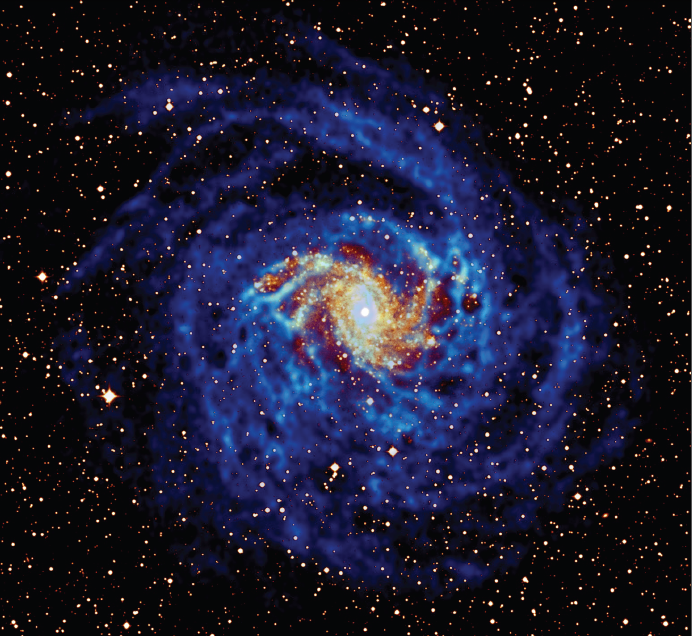ERC Advanced Grant voor sterrenkundige Thijs van der Hulst
De Europese onderzoeksorganisatie ERC (European Research Council) heeft een Advanced Investigator Grant toegekend aan prof. dr. Thijs van de Hulst, hoogleraar extragalactische radio sterrenkunde aan het Kapteyn Instituut van de Rijksuniversiteit Groningen. Van der Hulst krijgt een bedrag van circa 2,5 miljoen euro voor zijn vijfjarige onderzoeksproject ‘The HI Story of Galaxy Evolution in the Nearby Universe’.
Signalen van neutraal waterstof
In het project wordt onderzocht welke rol neutraal waterstof speelt in de evolutie van sterrenstelsels. De nieuwe groothoek-radiocamera APERTIF van de radiosterrenwacht Westerbork zal daarbij worden gebruikt. APERTIF is in staat grote gebieden van de noordelijke sterrenhemel af te zoeken naar signalen van neutraal waterstof afkomstig van sterrenstelsels in het nabije heelal.
Verder kijken met APERTIF
Het bijzondere van APERTIF is dat het het blikveld van de sterrenwacht vergroot met een factor 30. APERTIF biedt zo toegang tot data van vele duizenden melkwegstelsels in plaats van een paar honderd. De radiocamera is ontwikkeld door ASTRON ( The Netherlands Institute for Radio Astronomy) . Astronomen van het Kapteyn Instituut werken nauw samen met ASTRON aan het wetenschappelijk programma van APERTIF. Ze hebben een sterke traditie in het gebruik van radiotelescopen.

European Research Council
Het ERC Ideas programma biedt financiële ondersteuning voor het uitvoeren van grensverleggend onderzoek. In scherpe competitie worden de beste wetenschappers in Europa geselecteerd. De ERC Advanced Grant is één van de drie subsidievormen van het programma ERC Ideas. De andere subsidies zijn de Starting Investigator Grant en de Synergy Grant die recent in het leven is geroepen. In totaal zijn voor de 2011-ronde van de ERC Advanced Grant 2.283 onderzoeksvoorstellen ingediend; 13% meer dan bij de ronde van 2009.
Meer informatie:
Contact: prof. dr. J.M. van der Hulst
Meer nieuws
-
17 februari 2026
De lange zoektocht naar nieuwe fysica
-
10 februari 2026
Waarom slechts een klein aantal planeten geschikt is voor leven
